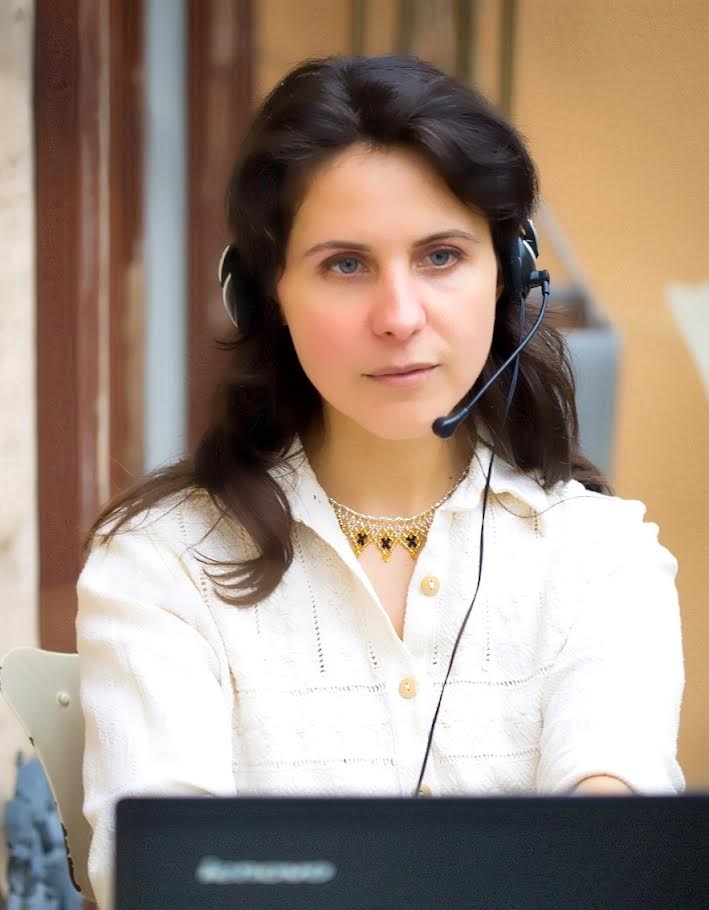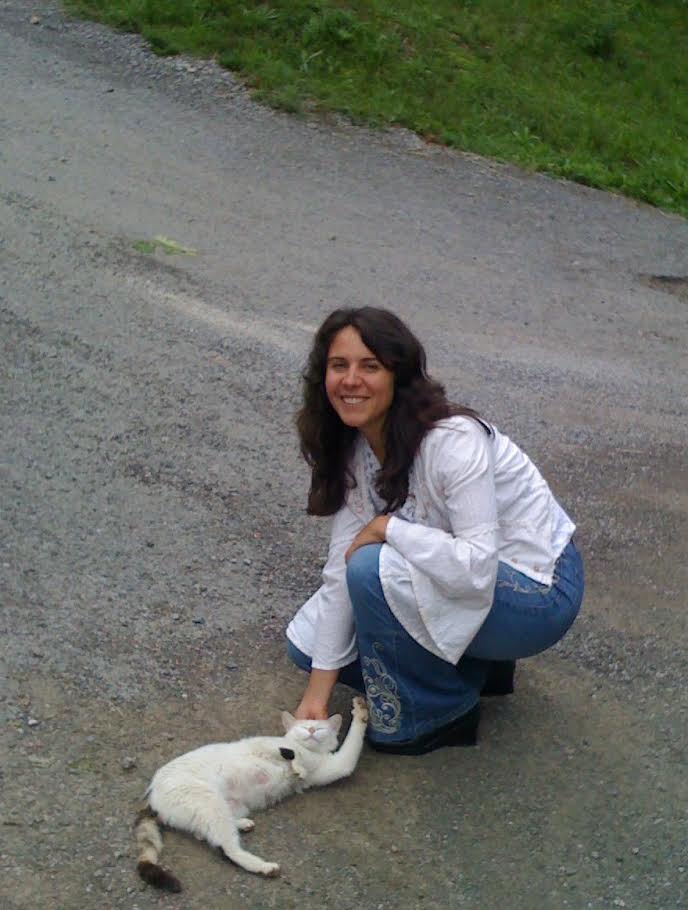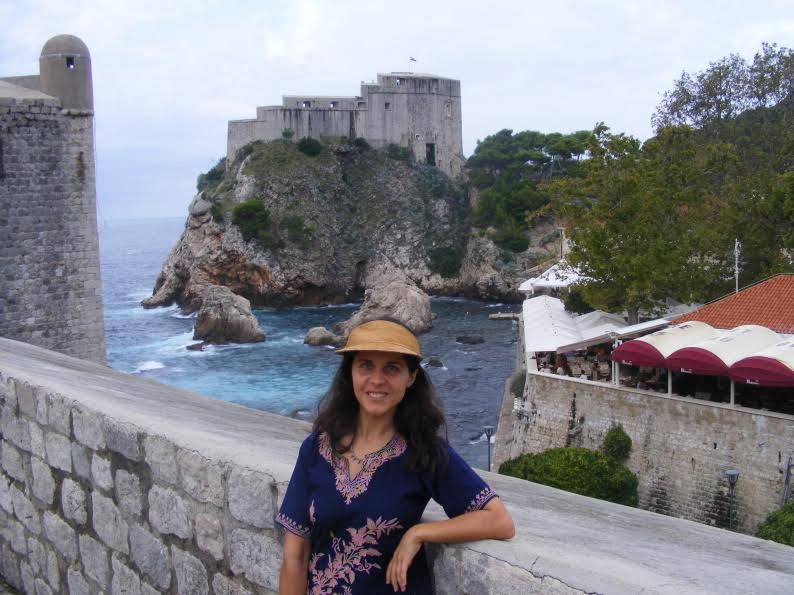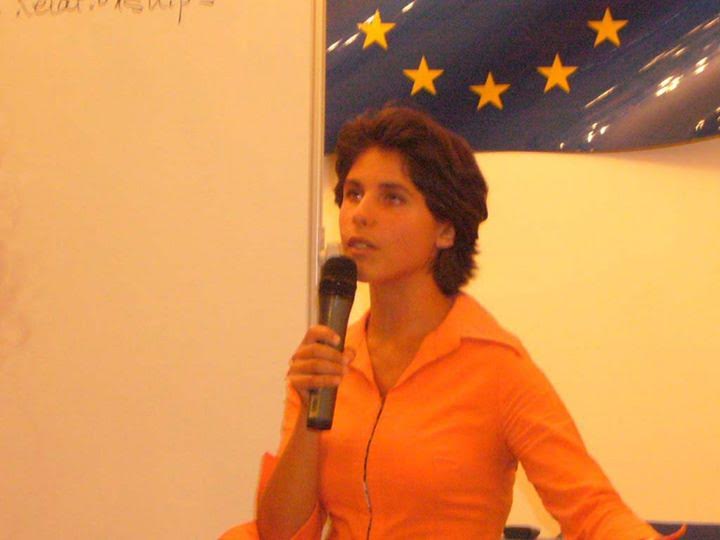Croats Living in Croatia, Earning Abroad: Kosjenka Muk near Karlovac
January 12, 2023 - The Croatian dream - to live in Croatia and get income from abroad. Meet the locals who are living that dream, and find out how you could, too, in a new TCN series. In the latest in the series, meet Kosjenka Muk, who is enjoying life in Istria.
Croatia, great for a 2-week holiday, but a nightmare for full-time living unless you are very rich, so the perceived wisdom goes. The Croatian dream is to live in Croatia with a nice income from abroad, as many foreigners and remote workers do. For Croatians, if I read the comments in my recent video, Croatia is the Best Place to Live: 8 Reasons Why (see below), salaries are too low and people are forced to emigrate in search of a better life.
While there is definitely an element of truth to this, it got me thinking. The era of remote work is here, and the workplace is increasingly global, with a labour shortage for many skills. It doesn't matter if you are from Boston or Bangladesh if you have the skills, desire, and work ethic, and are able to work remotely online. And while it is certainly true that salaries in Croatia are low, what about the opportunities that the global online marketplace offers? If foreigners can find ways to live in Paradise and work remotely, why not locals? Curious, I posted this on my Facebook and LinkedIn:
Do I know many Croats who are living in Croatia, but working remotely for international companies who would be interested in being part of a TCN interview series showcasing living in Croatia but earning online, including advice to others on how to get started? It could be an interesting series. If interested, contact me on This email address is being protected from spambots. You need JavaScript enabled to view it. Subject Remote Croatia.
Some 15 emails - and several inspiring stories - later, and I think we have the makings of what could be a rather interesting series, Croats Living in Croatia & Earning Abroad. Next up in the series, Kosjenka Muk near Karlovac.

My name is Kosjenka Muk, and I work as a coach for emotional and relationship issues. I grew up in central Istria and now live close to Karlovac, working mostly online while enjoying gardening and traveling in my free time.
My passion for psychology started around the age of 15 when I found some books about positive thinking and self-esteem in my local library. From my adult perspective, those books now seem oversimplified and superficial, but at that time, they gave me a breakthrough change of perspective. They helped me turn my adolescent depression around and made me realize that many of my uncomfortable emotions and beliefs were not the reality – and could change. I remember thinking, "How is it possible that nobody around me knows anything about this? How much would the world change if more people knew about this!” Of course, I was way too idealistic and inexperienced at the time, but from then on, my path in life was clear to me.

I decided to study what was then called "social pedagogy” rather than psychology, after being told that the study of psychology in Croatia is much more theoretical than practical. But where I truly found myself was in an extracurricular method of coaching called Integrative Systemic Coaching.
After some years of practice in Croatia only, I slowly moved on to online work in both Croatian and English. Now my clients are partly from Croatia, and partly from all over the world. Online work enables me not only to reach more people, but to live in the countryside rather than in a city, which I prefer as a nature lover and a bit of a farmer at heart. The Internet made it possible for me to achieve most of my dreams, and I keep thinking how lucky I am to live at this time in history, even with all its problems.
1. Many Croats are emigrating but you not only chose to stay, but managed to achieve the Croatian dream - living here and working for an international company. Tell us how you did it.

I'm actually self-employed rather than working for a company. It was quite a rough ride at first. I started in 2004, when the Internet was still relatively young in Croatia (but developing quickly), not many people even had an e-mail address yet, there was no tradition of coaching or voluntarily going to therapy, the market was small but the competition already fairly strong.
The first 2 years were bare survival. I tried various ways to promote my work, some rather expensive but none successful. I had no money to pay for web design, so I learned basic HTML to create a simple website myself. Then I started writing articles, which at first I sent to my friends' emails. Many people forwarded my articles around, which prompted new people to ask for them, and so my mailing list and practice grew. I also started giving regular public talks, often in libraries.
I'm a rather shy introvert, so all of that was quite scary for me, but my drive was stronger. Not to mention that I should live what I preach, right? After a while, I got an offer from a small publishing company to publish my articles as a book, which I eventually decided to publish myself. I also got an offer from a friend to make some CDs with guided exercises, which we did, but they didn't sell well.
Things were going well for a few years, and then the 2008 recession struck. Within a few months, I lost 80% of my income. Survival mode again! Luckily, my (now late) first partner, who was also my business partner at the time, was there to help. Together, we decided to include online coaching into our work. That was also tough at first, but slowly grew. I published my second book and decided to translate the first one into English and put it on Amazon. While researching Amazon publishing, I noticed that many people prefer short books they can read quickly, so I also wrote and published several short "workbooks”. Those don't bring much income, but are a source of credibility. I even recently met my new partner through them, so they obviously weren't a waste of time.
2. Looking for jobs based in Croatia can be a challenging task. How challenging was it for you to get where you are today - it must have taken a lot of determination and rejection.
My only experience of working for someone else was 2 years of part time work in a social service project in Istria, which was a part of the then government program called "S faksa na posao” ("From study to work”), which was meant to give graduate students some work experience so they would be more employable. After that, I got an offer for a full-time job in a local school, but I also wanted to start my own practice, which was a tough decision, especially for my parents' peace of mind. But I knew what I wanted, and I never looked back. The rest is history which you already know.
3. If you can do it, presumably others can too. Are you aware of others who have had similar success, but maybe in different industries?
I know of a few people in my own "trade”, as well as of quite a few IT experts, a couple of translators, a graphic designer, and a woman who promotes Croatian tourism and has published several successful books of Croatian recipes. The more the Internet and related industries grow, and especially with the recent jump in popularity of home office and online work, creative and persistent people have more opportunities than ever before.
4. What is the general feeling among people in Croatia today. Is it possible to have a good life here, or is the grass greener on the other side?
We all know the grass is always greener on the other side. But of course it's often more a matter of perception than reality. For some people, it might be easier to succeed in the West rather than Croatia, but it's also much easier to succeed from Croatia than from many other places in the world, especially nowadays. Living in rich countries also has its downsides, as foreigners who choose to live in Croatia well know.
My impression is that young people are moving further and further away from the socialist mindset of relying on somebody else for employment, although the older generations still often have discouraging views on entrepreneurship. Many people have moved out, many people (rightfully) complain, but I hope as time goes by, Croatia will be an increasingly attractive place to live.
5. Apart from corruption and nepotism, low wages are often cited as a reason to emigrate. But with the remote work revolution, as your example has shown, as well as the influx of many foreign workers to the likes of Rimac and Infobip for example, show that a good quality of life IS possible in Croatia. What are your thoughts on that?
Personally, I never had any particular "connections” to pull, nor did I ever consider finding some or bribing anybody, although I'm well aware that many local people get through life that way and sometimes don't seem to have a choice. There are some objective obstacles and difficulties to succeeding in Croatia, slow bureaucracy and high taxes, for example, on top of what you already mentioned. Still I would say that the biggest obstacles are in one's head. I hope with time more and more Croatian people will learn to think in terms of "Why not?” and to see difficulties as challenges, rather than the reasons to not try. Modern times give us so many opportunities. And hopefully we can collectively smarten up and start working on removing the obstacles, as well.
I must add I'm glad I'm only responsible for my own salary, though. Having employees would be much more difficult.

6. What advice do you have for others who would like to stay in Croatia, but have no idea where or how to find a possible remote work job or business as you have managed to do?
Your head is where you start. Be willing to take (reasonable) risks and get out of your comfort zone. Be willing to learn, including learning things beyond your primary area of interest. Expect some struggle in the early years and be patient, don't expect too much too soon. Develop your creativity and brainstorm ideas. More important than anything, think of mistakes and failures as the fastest way to learn, rather than proof you can't make it.
7. Three reasons you decided to stay in Croatia, and the one thing you would like to change in this country.
1) Balance. The work-life balance, the balance between industry and nature, even between rules and freedom (although the latter sometimes brings some headaches). I like that Croatia is not overpopulated, and most people still don't measure others by how much they earn, even if the introduction of wild capitalism in the 90s made things worse in this context.
2) Nature. I took Croatia for granted when I was a kid, and preferred long-distance travel at first, but the more experience I have, the more I realize how much beauty we have in a relatively small area.
3) Prices of real estate, especially of land if you want a garden, especially if you don't feel you must live at the coast or in Zagreb.
4) (optional) To not feel treated like an immigrant and a second-grade citizen, although as a taxpayer in Croatia, I have certain doubts about evading the latter.
What I would most like to change is the attitude to voting in Croatia. Not only to coming out to vote at all, but also voting along party lines, tribal lines, inertia lines, or even corruption lines. Only when we change that, can we truly start solving the other problems.
Contacts:
You can learn more about Kosjenka Muk via her website and Facebook.
****
Thanks Kosjenka, very inspiring, and congratulations on all your success.
You can follow the rest of this series in the dedicated TCN section here.
If you would like to contribute your story to this series, please contact This email address is being protected from spambots. You need JavaScript enabled to view it. Subject Remote Croatia.
****
What is it like to live in Croatia? An expat for 20 years, you can follow my series, 20 Ways Croatia Changed Me in 20 Years, starting at the beginning - Business and Dalmatia.
Follow Paul Bradbury on LinkedIn.
Subscribe to the Paul Bradbury Croatia & Balkan Expert YouTube channel.
Croatia, a Survival Kit for Foreigners is now available on Amazon in paperback and on Kindle.





